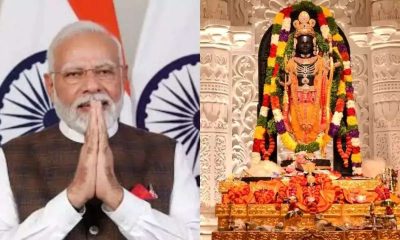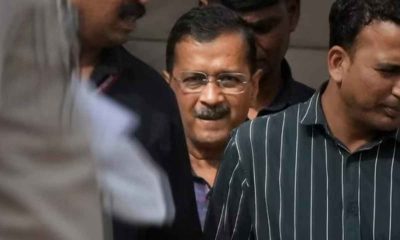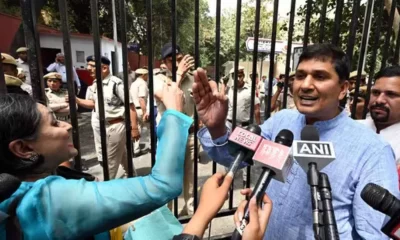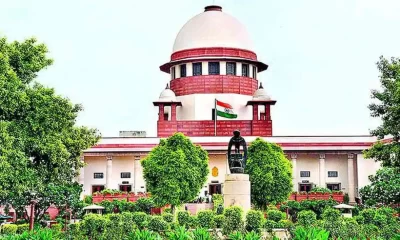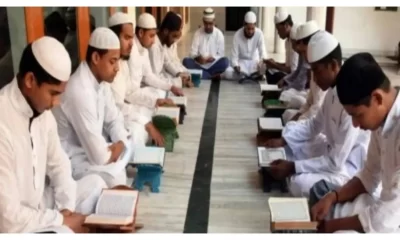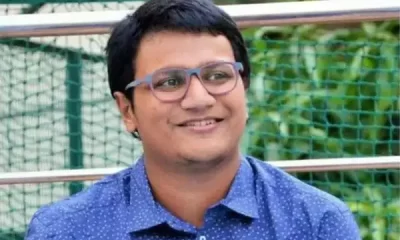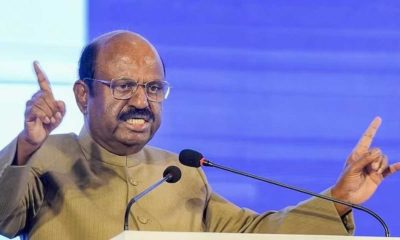India News
Supreme Court reserves order on going for court-monitored mediation in Ayodhya dispute
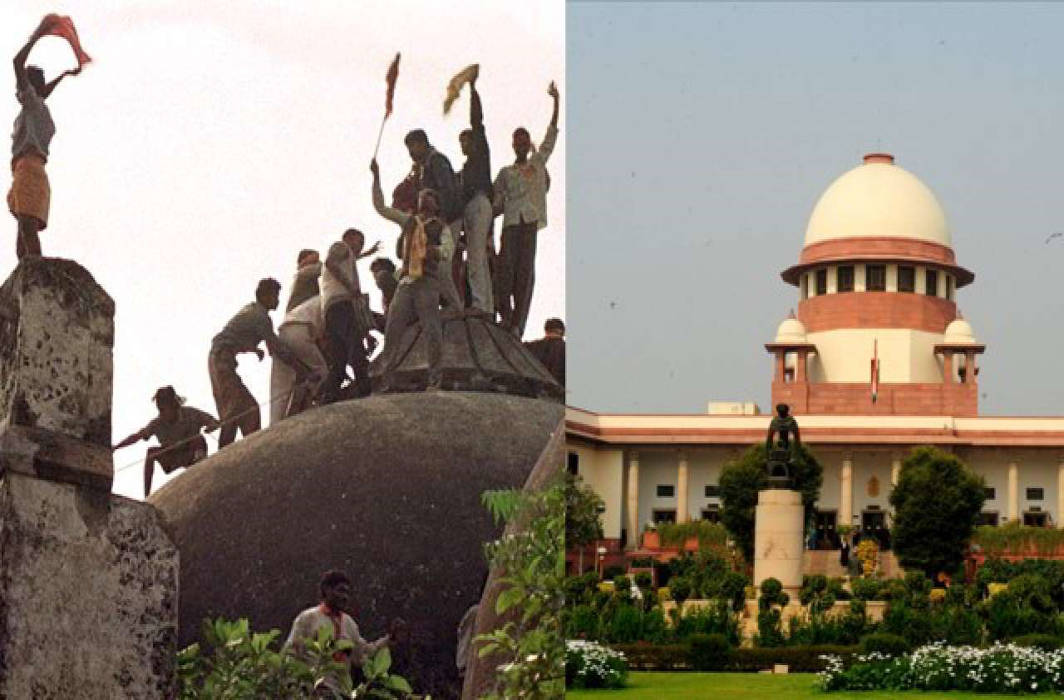
[vc_row][vc_column][vc_column_text]
Justices SA Bobde and DY Chandrachud differ in open court on whether mediation outcome will be binding on the community at large
The Supreme Court tiday (Wednesday, March 6) reserved its order on whether the politically-sensitive Ram Janmabhoomi-Babri Masjid title dispute land dispute can be settled through court-monitored mediation.
A five-judge Constitution Bench headed by Chief Justice Ranjan Gogoi and also comprising Justices SA Bobde, DY Chandrachud, Ashok Bhushan and S Abdul Nazeer heard submissions from various Hindu and Muslim bodies involved in the matter.
The Bench had, on February 26, indicated its desire for sending the dispute for court-monitored mediation.
The Bench said the case was not only about property but also about sentiment and faith. “It is not only about property. It is about mind, heart and healing, if possible,” it added. “We are not concerned about what Mughal ruler Babar had done and what happened after. We can go into what exists in the present moment,” the Bench said.
The top court had asked the contesting parties to explore the possibility of amicably settling the decades-old dispute through mediation, saying it may help in “healing relations.”
As many as 14 appeals have been filed in the top court against the 2010 Allahabad High Court judgment, delivered in four civil suits, that the 2.77-acre land in Ayodhya be partitioned equally among the three parties — the Sunni Waqf Board, the Nirmohi Akhara, and Ram Lalla.
The highlight of today’s proceedings, however, was the gentle sparring between Justices Bobde and Chandrachud who clearly appeared divided on whether an outcome achieved through mediation will be binding on the communities (Hindu and Muslim) at large or just to the petitioners in the case.
As the proceedings commenced, counsel for some of the Hindu parties in the case submitted before the Bench that there was “no question of a compromise” through a mediation process and any outcome of such an effort will not be agreeable to the public at large. They added that even if the court was desirous of sending the Babri Masjid-Ram Janmabhoomi title suit into mediation once again, a public notice to the effect will first need to be issued inviting views.
Justice Bobde, who during the last hearing in the case had surprised all parties in the suit by suggesting a renewed effort for arbitration, stood his ground and said “it is not fair to pre-judge the issue and say mediation will be a failure even before it begins… This is a dispute about sentiments, about faith.”
Reiterating his earlier stance that the court views the suit as a way of “healing relationships” and “not just a property dispute”, Justice Bobde said: “It is about mind, heart and healing relationships. We are also conscious of gravity of the issue and its impact on the body politic. Don’t think you (counsels objecting to the mediation process) have more faith than us.”
Senior advocate Rajeev Dhavan, appearing for one of the key Muslim petitioners in the case, informed the court that he was open to a court-monitored mediation and added that “consent of all parties isn’t a requirement to order mediation.” Dhavan added that “only arbitration and not any other alternate dispute resolution needs consent”.
Justice Bobde reiterated that if the court does indeed invoke Section 89 of the Code of Civil Procedure to order mediation, “maintaining confidentiality of the process would be very important.” He then wondered what the court would be bound to do “if someone who the parties have spoken to leaks it (details of the mediation) out.”
Indicating that the media will be barred from reporting on the mediation process if the court orders such an effort, Justice Bobde asked: “How can we stop the media from reporting about it”, to which Dhavan replied: “there can be a specific order to this effect.”
Justice Bobde reiterated that “confidentiality is essential” and “it is necessary that it is not written about in the media while it is in process.”
As remarks by Justice Bobde and submissions of senior advocate Dhavan gave an impression that the court was inclined towards sending the suit for mediation, Justice Chandrachud pointed out that the case is not just a dispute between parties but a dispute involving two communities. “How do we bind millions of people by way of mediation? It won’t be that simple… Desirability of resolution through peaceful talks is an ideal situation. But, how do we go about it is the real question,” Justice Chandrachud remarked.
The clear dissent from Justice Chandrachud triggered Justice Bobde into offering a long rebuttal. “If a counsel represents a community or a group and accepts for mediation, there cannot be an argument that it (the outcome) will not bind everyone. If it is good for one, it has to be good for another,” Justice Bobde said.
Asserting that if mediation results in a decree then such an order will be legally binding, Justice Bobde added: “Decree passed subsequent to a compromise (mediation) and decree passed subsequent to court proceedings is not different and it has the same effect in law.”
Senior counsel Dhavan then interjected to submit that “there will always be some amount of angst in the people whenever a case like this is decided”, while asking Justice Chandrachud, “why is the court worried about the angst?”
Dhavan then cited the top court’s landmark verdict that quashed the centuries-old ban on entry of women aged between 10 and 50 years into Kerala’s Sabarimala temple – a verdict that was delivered by a bench of which Justice Chandrachud was a part. “Religious sentiments were involved in that case too but the Supreme Court still passed an order,” Dhavan pointed out.
Senior advocate CS Vaidyanathan, appearing for the infant Lord Ram (Ram Lalla Virajman), a petitioner in the case, told the court that while it was accepted that Ayodhya is the Ram Janmabhoomi, “which is the exact Ram Janmasthan (birthplace) is up to belief and faith and there cannot be any negotiation on that.”
Vaidyanathan reiterated his opposition to mediation while senior advocate Ranjit Kumar, appearing for another Hindu party, joined in and added that the definition of a decree (arrived after mediation) suggests that “it will be binding only on the parties.” Vaidyanathan also told the court that the issue of construction of a Ram Temple at the disputed site is non-negotiable since “it is an issue of faith for the Hindus and we are even willing to crowd fund for construction of a mosque somewhere else.”
Chief Justice Ranjan Gogoi then responded to the submission saying: “you are suggesting that the result of mediation might be stillborn.”
The proceedings also saw a minor verbal duel between Solicitor General Tushar Mehta and Dhavan. As Mehta began his submissions, opposing an order favouring mediation, the Chief Justice asked him who he was appearing for.
When Mehta responded that he was appearing for the State of Uttar Pradesh, Dhavan said he is opposed to the Solicitor General’s submissions on behalf of the Uttar Pradesh government since the counsel for the State of UP had earlier told the Allahabad High Court that they are not an interested party in the case.
The court later reserved its verdict on whether to send the suit for court-ordered mediation on not.[/vc_column_text][/vc_column][/vc_row]
2024 Lok Sabha Elections
Election Commission advises Bengal Governor to not visit Cooch Behar on voting day
The Election Commission advised the Bengal Governor to call off his proposed visit to Cooch Behar on April 19.
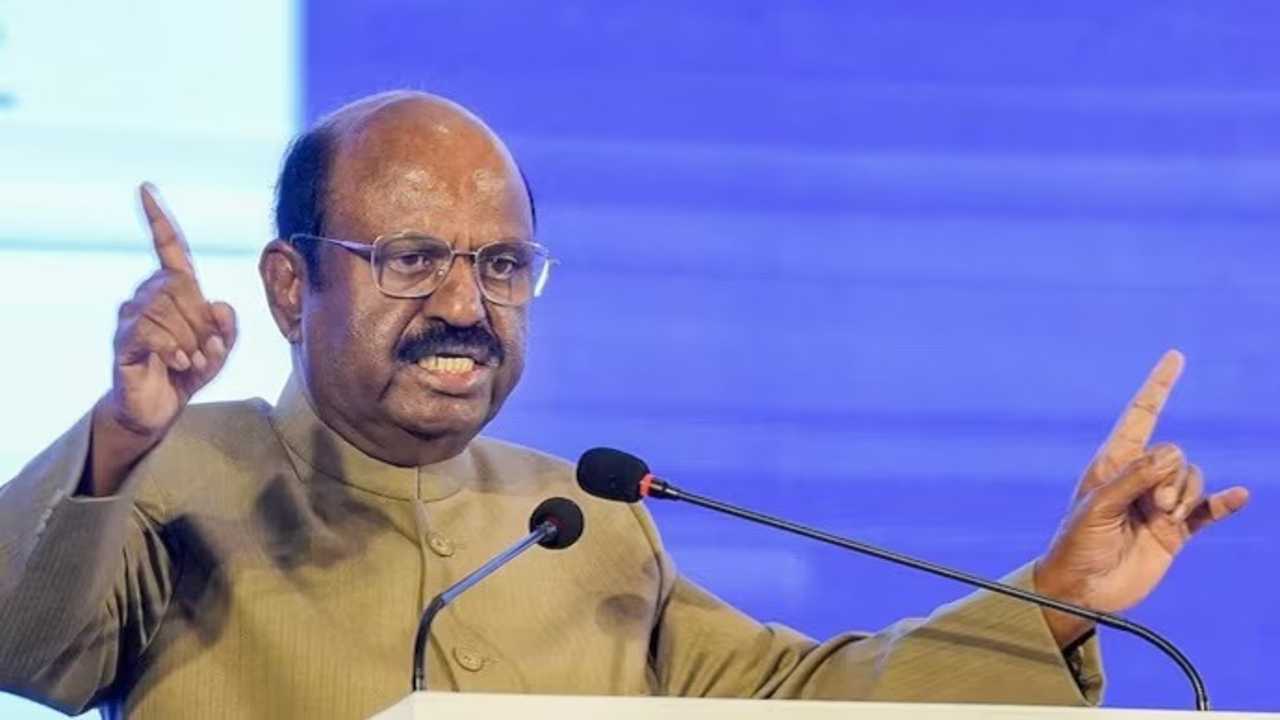
West Bengal governor CV Ananda Bose has been warned by the Election Commission of India (ECI) not to visit Cooch Behar on April 18 and 19, since the first phase of the Lok Sabha polls will begin with a silence period on Wednesday evening.
According to those familiar with the situation in the EC, the poll body informed the governor’s office that no local program could be planned for the governor on April 19 due to the Model Code of Conduct and the election day.
The poll body added that if they had to provide local security cover for this unexpected proposed visit without a imminently known requirement, the tour would be a diversion because the district administration and police force will be completely occupied with election management on April 18 and 19.
As a result, under Section 126 of the Representation of People Act, campaigning is prohibited in Cooch Behar starting at 6 p.m. on Wednesday.
In order to ensure a free and fair election process, the poll board has asked all district election officers and district police chiefs to make sure that all prominent individuals, campaigners, and political workers who are not local voters leave the polling area once the silence period begins.
The seven phases of the 2024 Lok Sabha elections will take place between April to June. Polls will be conducted in seven phases: the first on April 19 and the seventh on June 1. On June 4, the results will be announced.
India News
Lamborghini Gallardo worth nearly Rs 1 crore set on fire over business dispute
A video circulating on social media shows the luxury car Lamborghini Gallardo being burned and reduced to ashes. The police officials said a complaint has been registered by Neeraj, a car reseller who had bought the luxury car from its original owner.

A person who deals in the sale and purchase of old luxury cars and a few others has allegedly burnt an old but expensive model of Lamborghini Gallardo on a road in Hyderabad over a dispute with its owner on Monday. The police said the owner of the Lamborghini Gallardo, Neeraj wanted to sell off the vehicle, estimated to be worth up to Rs 1 crore, and had informed some of his friends to look for a buyer.
The police added that the main accused Ahmed had called a friend of Neeraj and asked him to bring the car. The said friend of Neeraj was known to the Ahmed. When the luxury car was brought to Mamidipalli Road which is situated on the city outskirts Ahmed along with a few others, burnt the luxury car using petrol and claimed that Neeraj owed him money.
A video circulating on social media shows the luxury car Lamborghini Gallardo being burned and reduced to ashes. The police officials said a complaint has been registered by Neeraj, a car reseller who had bought the luxury car from its original owner. By the time fire department vehicles arrived at the scene it was too late as the luxury car was engulfed in flames and badly damaged. A video of the burning Lamborghini Gallardo has been circulating on social media.
The incident is a proof to the lengths to which disputes can rise. An expert spoke about the car that got burnt and said it was the Gallardo Spyder. He pointed out that it is a substantially older gen model which can only be found in the resale market. The expert further added the car has a powerful 5-litre NA V10 engine that made 513 horse power and 510 Nm of peak torque.
2024 Lok Sabha Elections
2024 Lok Sabha elections: TMC releases manifesto, Mamata Banerjee vows to scrap CAA, stop NRC
The Trinamool Congress has today released its manifesto for the Lok Sabha elections
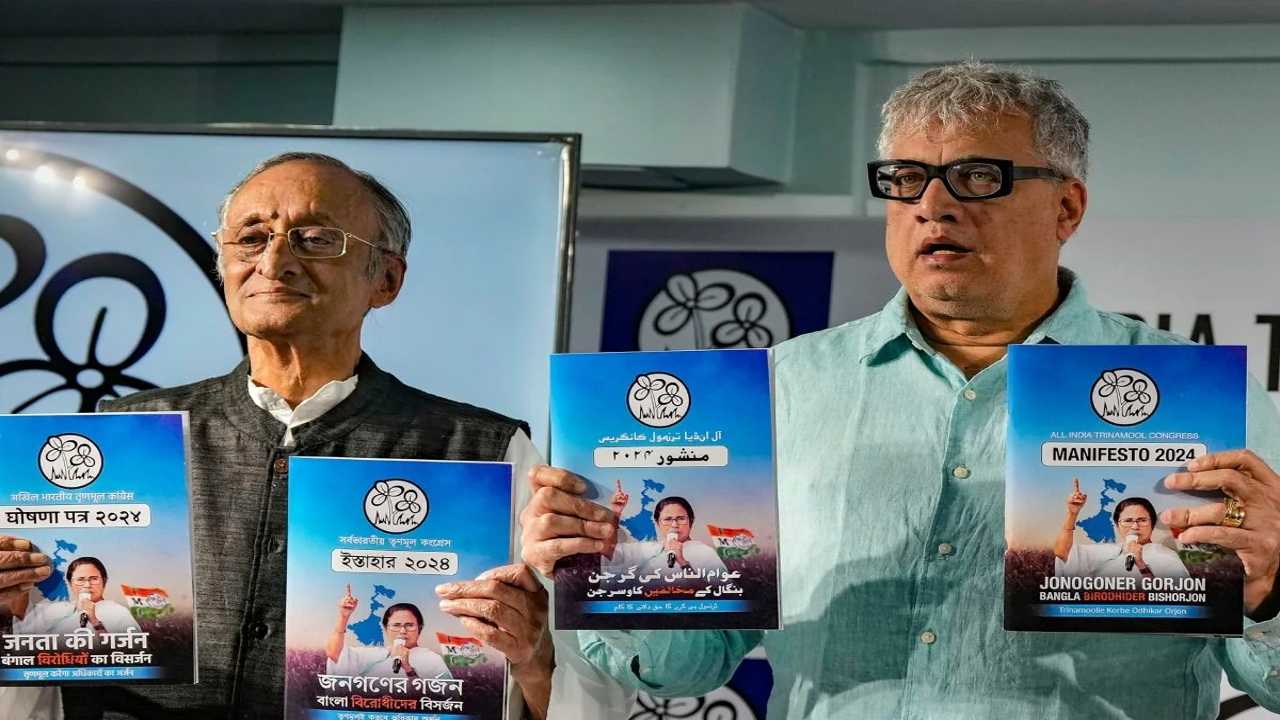
West Bengal CM Mamta Banarjee-led Trinamool Congress (TMC) today released its manifesto for the upcoming Lok Sabha elections. In its manifesto, the TMC pledged to repeal the Citizenship Amendment Act (CAA), stop the development of a National Register of citizens and the Uniform Civil Code (UCC), and stop its implementation nationwide.
The manifesto was unveiled by Trinamool MP Derek O’Brien, West Bengal Minister Chandrima Bhattacharya, and Amit Mitra, who is the Special Advisor to the Chief Minister. However, West Bengal CM Mamata Banerjee was not present at the event.
As Derek O’Brien unveiled the manifesto, he said, this is what they will do when the TMC, as part of INDIA bloc, forms government.
The Citizenship Amendment Act has long been opposed by the Trinamool Congress. Five years after it was approved by Parliament, the central government finally put the CAA into effect last month.
The party led by Mamata Banerjee has also expressed resistance to the National Register of Citizens proposal, claiming that West Bengal will never adopt it.
The manifesto titled Didi’s 10 sapaths, alludes to 10 oaths made by Mamata Banerjee, popularly known as Didi.
The Mamata Banerjee-led party additionally pledges to raise the daily allowance under the Mahatma Gandhi National Rural Employment Guarantee Act to Rs 400 per day in addition to the UCC and CAA. Everyone has also been offered pucca houses by the party.
A monthly pension of Rs 1,000 for people over 60, free home delivery of 5 kg of ration for every ration card user, 10 free LPG cylinders annually for families below the poverty line, and universal healthcare coverage worth Rs 10 lakh are among the other significant commitments made.
Additionally, the Trinamool Congress has pledged to establish a price stabilization fund in order to control the cost of gasoline and LPG.
The party has assured the youth that every student will receive a monthly stipend up until the age of 25. A student credit card of Rs. 10 lakh will be awarded to those who choose to continue their education.
-

 Latest world news21 hours ago
Latest world news21 hours agoDubai sky turns green during storm in UAE, video goes viral
-
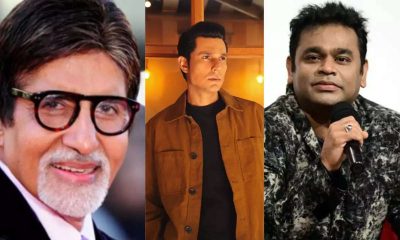
 Entertainment24 hours ago
Entertainment24 hours agoAmitabh Bachchan to receive Lata Deenanath Mangeshkar award, AR Rahman, Randeep Hooda to be honored
-
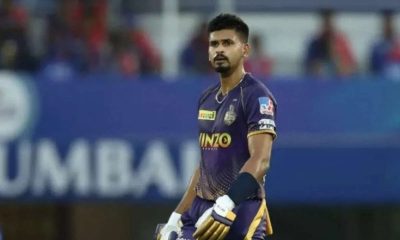
 Cricket news21 hours ago
Cricket news21 hours agoKKR captain Shreyas Iyer fined Rs 12 lakh for slow over rate in match against RR
-
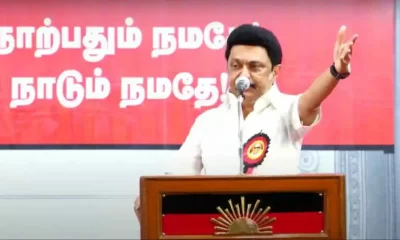
 2024 Lok Sabha Elections23 hours ago
2024 Lok Sabha Elections23 hours agoMK Stalin says if Prime Minister Narendra Modi comes to power again, the country would go back by 200 years
-
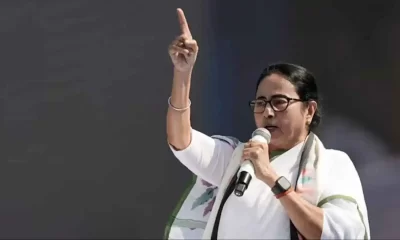
 2024 Lok Sabha Elections20 hours ago
2024 Lok Sabha Elections20 hours agoMamata Banerjee accuses BJP of plotting riots on Ram Navami
-
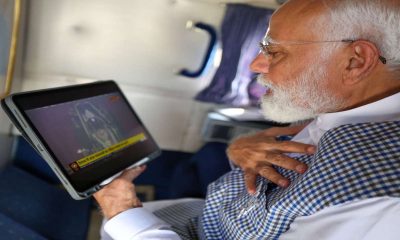
 India News23 hours ago
India News23 hours agoPM Modi chants Jai Shri Ram in Assam rally, shares visuals of Ram Lalla’s Surya Tilak, says emotional moment for him
-

 Latest world news20 hours ago
Latest world news20 hours agoBigg Boss 14 contestant Rahul Vaidya struggles walking in knee deep water, compares Dubai rains with Mumbai floods
-

 India News18 hours ago
India News18 hours agoLamborghini Gallardo worth nearly Rs 1 crore set on fire over business dispute

